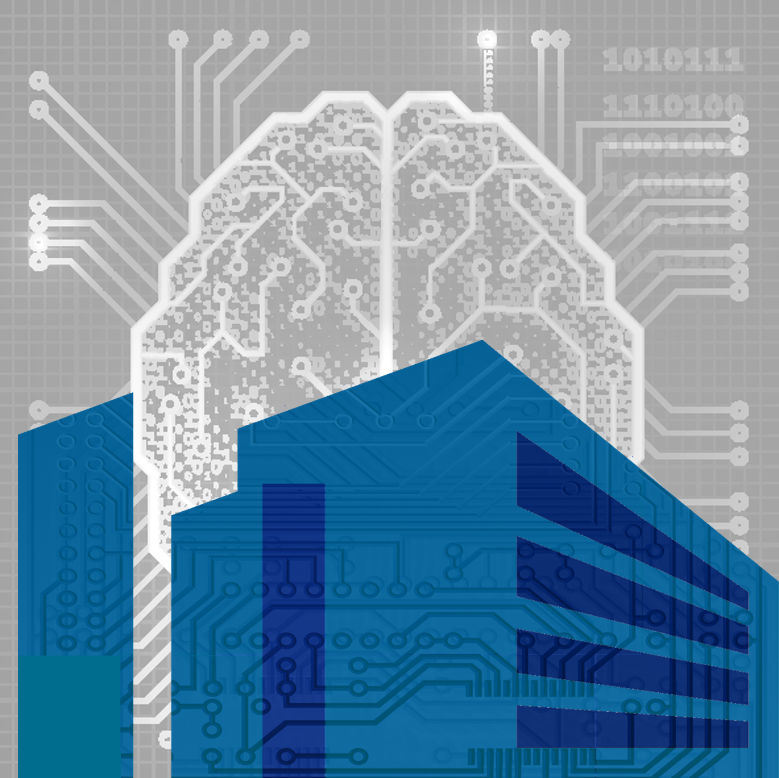Some industries have already felt the full effects of digital transformation (e.g., media and retail). Boston Consulting Group (BCG) analysts, Lars Fæste (@Lars_Faeste), Thomas Gumsheimer, and Matthias Scherer, insist most industries will eventually feel digitization’s impact. “In contrast to industries like media and retail, where digital technology has been a significant disruptive force,” they write, “process-oriented industries such as energy, transportation, industrial goods, and health care have not yet seen its full effects.”[1] Most analysts agree transforming into a digital enterprise is an imperative for businesses currently organized and operating using principles developed during the industrial age. BCG analysts insist “entire industries are [being] disrupted by bold digital entrants and business models” and, as a result, “more and more companies are at risk of extinction.”[2] They conclude, “Digital strategy and transformation must therefore be a top priority of the CEO and the senior-management team.”
The Digital Enterprise Imperative
BCG consultants assert digital transformation has become an imperative for most businesses and believe “the digital imperative calls for more fundamental action in five areas”: Prototyping your strategy; disrupting your business (before others do); digitizing your core business; creating value from data; and positioning your business in a broader ecosystem.
Prototyping Your Strategy. BCG analysts insist that long-term planning is “no longer possible.” They recommend an “agile” approach to business development (i.e., “learning by doing”). “Leading digital companies test and refine, or prototype, products and strategies in close cooperation with customers and at a dizzying pace.”
Disrupting Your Business. The analysts recommend business leaders utilize “what if” thinking and create “digital attacker businesses” that could potentially put their companies out of business. “Long-dominant companies are increasingly under attack from a host of digital start-ups that are out to reinvent businesses and industries by addressing consumer needs in completely new ways.”
Digitizing Your Core Business. “Top management must take advantage of digital capabilities to transform the current business. This isn’t just about rolling out new IT projects but also about fundamentally transforming the company’s business to ensure leanness, agility, and lower cost. Best-in-class companies think ‘end to end’ about where digital efforts can produce a step change in performance and value for their customers — not only in marketing but also in operations and the back office.”
Creating Value from Data. “Agile leaders, they insist, “try to find ways to better use internal and external data. BCG research shows that leaders in the use of big data generate 12 percent higher revenues than companies that don’t experiment with big data. They are three times more likely than weak innovators to mine big data for new-project ideas and to actively target innovation toward digital design, mobile products and capabilities, speed of adopting new technologies, and big-data analytics.”
Positioning Your Business in a Broader Ecosystem. “Companies must secure their place in the broader ecosystem — the network of companies, individual contributors, institutions, and customers that interact to create mutual value. Digital ecosystems are disrupting businesses in nearly every consumer-centric industry through close collaboration among partners, institutions, and customers. Ecosystem players join forces with external companies working toward a common goal and achieve complete alignment of the value chain.”
They conclude, “To be sure, companies that embrace the digital imperative take on a fundamental transformation of their business, including some strategic and execution risk and disruption. But to do otherwise risks a fate worse than disruption: extinction.” Even though they correctly insist that digital transformation isn’t just about technology, technology does play a significant role. Tita Datu Puangco writes, “Digital tools and technologies are impacting and disrupting the way business is done.”[3]
Digital Transformation and Artificial Intelligence
As Puangco notes, companies need to arm themselves with technologies capable of helping them traverse this new business landscape. Chief among these technologies is artificial intelligence (AI). “There may be no turning back for enterprises in a broad range of industries,” writes Justine Brown (@Justine_Brown), “which will soon see ‘smart’ technologies become vital to competing more effectively and efficiently.”[4] She bases her assertion on a report from Gartner. According to that report, “Almost one-third of large companies will employ smart machines by 2021. … Gartner defines ‘smart machines’ as technologies that include artificial intelligence, machine learning, cognitive computing, deep learning and intelligent automation.” Susan Tan, research vice president at Gartner, stated, “Smart machines will profoundly change the way work is done and how value is created. From dynamic pricing models and fraud detection, to predictive policing and robotics, smart machines have broad applicability in all industries.”
Timo Elliot (@timoelliott) explains, “Artificial intelligence is now taking off because there’s a lot more data available and affordable, powerful systems to crunch through it all. It’s also much easier to get access to powerful algorithm-based software in the form of open-source products or embedded as a service in enterprise platforms.”[5] Sandeep Raut (@rautsan), Director for Digital Transformation at Syntel, agrees that data is the primary driver of digital transformation. “With exponential growth in data from people and things,” he writes, “a key to survival is to use machine learning & make that data more meaningful, more relevant to enrich customer experience.”[6] Elliott explains that artificial intelligence, cognitive computing, and machine learning often refer to the same technology. “The term Cognitive Computing seemed to be poised to win,” he writes, “but IBM’s strong association with the term may have backfired — journalists and analysts want to use language that is independent of any particular company. Currently, the growing consensus seems to be to use Machine Learning when talking about the technology and Artificial Intelligence when talking about the business uses.” I believe the term “cognitive computing” better captures the breadth of things truly smart machines can tackle. Brown concludes, “What’s key is that smart technologies will help increase the rate of innovation. The rise of smart machines will also create an underlying economy — focused on service and implementation — which will help companies better leverage the technology they employ.”
Summary
Business leaders can almost feel the ground moving beneath their feet. Trying to maintain their balance will be difficult if they don’t use all of the tools at their disposal — especially cognitive computing. “What are the benefits of digital transformation,” Puangco asks. “One is to improve performance, achieve higher productivity and increase process efficiency. Two is to innovate better and faster. Three is to enhance the delivery of the customer experience, it means optimizing enterprise value.” Transformation won’t be easy. Change never is. Elliott warns, “Barriers to business benefit are more likely to be cultural than technical.” If analysts are correct, digital transformation is not an “if” but a “when.”
Footnotes
[1] Lars Fæste, Thomas Gumsheimer, and Matthias Scherer, “How to Jump-Start a Digital Transformation,” bcg.perspectives, 1 September 2015.
[2] Ralf Dreischmeier, Karalee Close, and Philippe Trichet, “The Digital Imperative,” bcg.perspectives, 2 March 2015.
[3] Tita Datu Puangco, “Digital enterprise transformation,” Inquirer.net, 18 December 2016.
[4] Justine Brown, “Gartner: ‘Smart machines’ to become an enterprise staple,” CIO Dive, 18 December 2016.
[5] Timo Elliot, “Machine Learning and Artificial Intelligence in the Enterprise,” ZDNet, 21 November 2016.
[6] Sandeep Raut, “Machine Learning – a key to Digital Transformation!!!” Customer Think, 30 November 2015.





